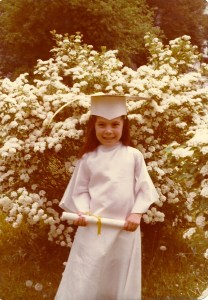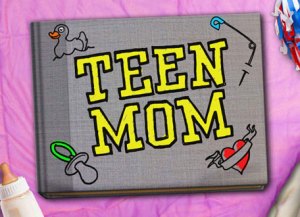When a woman reaches a certain age, she is expected to start thinking about having children. If she doesn’t, society demands an answer. (Telegraph)

Childless Woman Taboo
Sarah Rainey recently took up the much discussed and debated February Vogue article in which Dame Helen Mirren “confronts the final female taboo“: childlessness. Like many commentators, Rainey finds Mirren’s candor refreshing in a media maelstrom prone to condemning childless celebrities (or at least badgering them to explain and justify why they are childless.) Regarding her own experience, Mirren explains that women never judged or harassed her. Men did.
[It] was only boring old men. And whenever they went ‘What? No children? Well, you’d better get on with it, old girl,’ I’d say ‘No! F— off!’ ~ Dame Helen Mirren (Telegraph)
Female childless celebrities like Cameron Diaz, Jennifer Aniston and Kylie Minogue are relentlessly interrogated. Pregnant? Baby bump? Just pudgy? Why no baby bump? When will you become mother? Why aren’t you a mother?
“The expectation is that they [women] will marry and have children,” explains Sue Fagalde Lick, author of Childless by Marriage. “If they don’t, everyone wants to know what’s wrong with them.” (Telegraph)
What’s Right with Them
Sure, once upon a time, looong ago childbearing was an almost essential and unquestioned connubial responsibility. Make babies to chop firewood, grow crops, protect us from marauders, care for us when we are old. I get. We get it.
But one of the really groovy perks of living in the first world in the dawn of the 21st century is that we’re no longer locked into this breed-or-bust marital model. Here’s a telling statistical arc.
An ONS study in 2010 found that just one in nine women born in 1938 remained childless, rising to one in five women born in 1965. It is projected that a quarter of 45-year-olds will be childless by 2018. (Telegraph)
Who are these disreputable, irresponsible scallywags? It’s time to expose them, to reveal them for who and what they are!
“You will find them among the higher educated, the ambitious and the high-flyers,” explains [author Fay] Weldon. “They, like Mirren, have a different but equal service to make to the community. They should be praised, not condemned.” (Telegraph)
Oh.
Right. Different but equal. Ambitious, highly educated high-flyers.
Childless Women: From Taboo to Equality

A strong woman stands up for herself.
A stronger woman stands up
for everyone else. (Credit: Quoteswave)
Yet, as Mirren articulates, women are frequently derided when childless. And while she lays the bugaboo at the insensitive feet of men, it seems that she may be oversimplifying the equation.
Tracey L Anderson‘s post “Childfree: All Women are Created Equal” sees women as the primary culprits, perpetuating the medieval childless taboo upon their female contemporaries.
It was mostly women who were negative about my decision… I saw that it’s often women who don’t support other women’s life choices; it’s often women’s stereotypes of what we should be and do that get in our way. (Flurt!)
We’ll let Dame Mirren and Ms. Anderson debate whether men or women are more to blame for reinforcing long stale judgments and condescension toward childless women. What is evident is that the taboo endures despite statistical shift and more widespread recognition that motherhood should be a decision, not destiny.
Men, women, society. Something is stuck. Or clinging. Either way, it is high time we move forward. There’s a bright future ahead. It is a Technicolor tomorrow where equality reigns and we encourage and celebrate diversity of all flavors. Moms respect dads. Dads respect moms. Let’s start with that! And parents respect childless couples. And childless individuals. And childless by choice respect parents. And all of us embrace and support those who wanted to be parents but couldn’t. We might even discover that it is pretty fascinating to hear each other’s stories about why we are the way we are, to listen without judging or sneering or condescending or belittling. Sounds great, right?
To all women with children who unfairly judge those of us who have decided not to follow in your motherhood footsteps, I say, “accept every woman for who she is. Respect the decisions she has made for herself. Just because her choices are not the same as yours is no reason to criticize or belittle. She is not any less a woman than you are because she chose not to have children. Women need to support one another and to encourage one another to be who and what we each want to be.” (Flurt!)
Transform Childless Taboo into Folklore
In truth, it is “boring old men” and myopic mothers who perpetuate the breed-or-bust stereotype for women. But it’s also true that many of us in the childless by choice camp perpetuate “breeder” stereotypes that offend parents. Sometimes it is unintentional. Sometimes not. Often we are just as guilty of judging and sneering and condescending and belittling. Perhaps it’s a defensive mechanism or a way to vent after absorbing yet another breeder bingo. But it is not helpful. And it too reinforces the divide between parents and childless couples.
Let’s stop. We can. I challenge us to transform childless women taboos into folklore. Trite, amusing folklore. Yes, we can.
Can’t we?
Related articles
Related articles



















